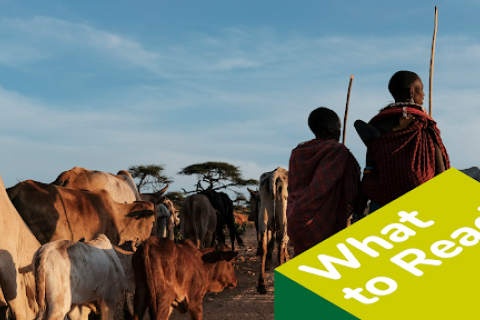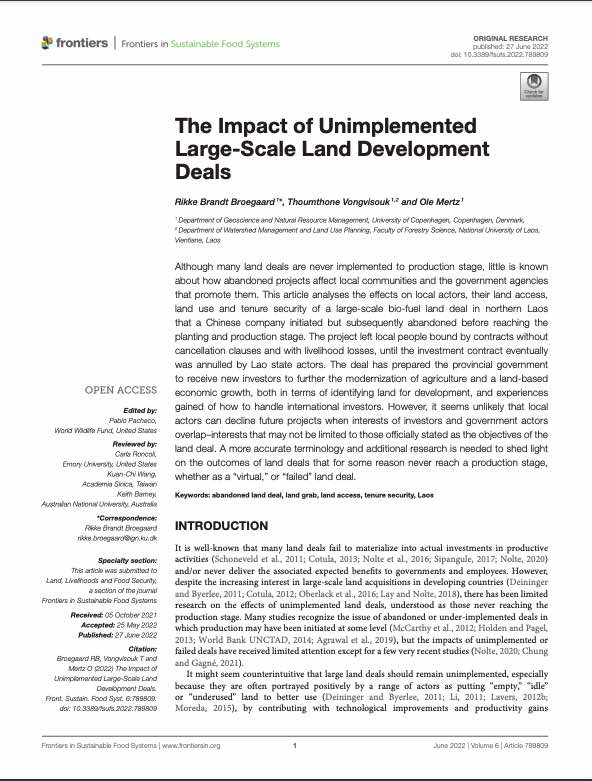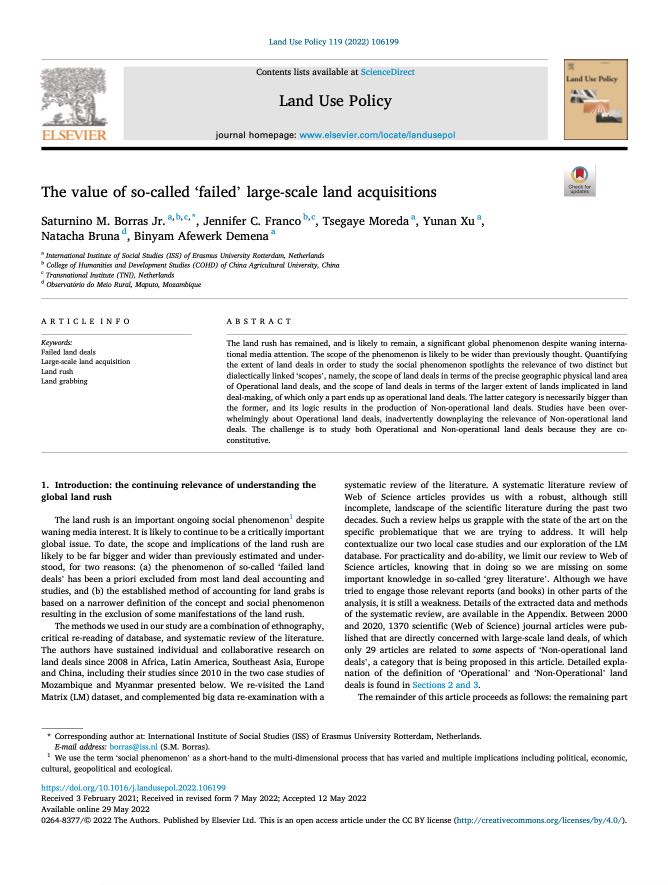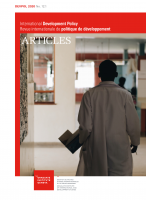
Topics and Regions
Romy leads the development of Land Portal's Country and Thematic portfolios, as well as the curation and ingestion of land-related publications and statistical datasets.
She is a communications specialist and policy advisor/project manager with more than 20 years of experience. She has worked previously with Embrapa (Brazil), CIFOR, FAO, GIZ, amongst other organizations on topics such as community forest management, payments for environmental services and agriculture & food security policy.
For the last 10 years her work has focused on land governance while as a project manager. In 2015 she supported the Global Donor Working Group on Land to advocate and secure SDG indicator 1.4.2 on land tenure security.
Romy holds a BA in Journalism from the Federal University of Pará, Brazil, and an Master of Science in Environmental Governance from the University of Freiburg, Germany.
Details
Affiliation:
Location
Contributions
Displaying 41 - 50 of 129Environments
Corruption in Urban Planning: A Guide for Professional and Trainee Planners
Urban planners are entrusted with the power to make critically important, long-term decisions that determine the future development of cities and towns around the world. The decisions they take shape the urban environment and directly affect the lives and livelihoods of entire communities.
Are pastoralists and their livestock to blame for climate change?
This What to Read digest examines livestock keeping in pastoral systems and features recent research that reviews the relationship between pastoral livelihoods and global climate change.
Data Story: What makes and breaks achieving women's tenure security
Celebrating Women's International Day, we take a tour to Sierra Leone and put our lens on specific factors that affect women's perception of being insecured in their lands. This data story is based on fresh data from partner organisations Green Scenery, Resource Equity and the University of Groningen.
The Impact of Unimplemented Large-Scale Land Development Deals
Article published in the Journal: Frontiers in Sustainable Food Systems.
The value of so-called ‘failed’ large-scale land acquisitions
The land rush has remained, and is likely to remain, a significant global phenomenon despite waning international media attention. The scope of the phenomenon is likely to be wider than previously thought.
Caught in the Web of Bureaucracy? How ‘Failed’ Land Deals Shape the State in Tanzania
After more than ten years of hectic debates on international ‘land grabs’, academic interest in collapsed land deals or projects with unexpected results is growing. According to the Land Matrix, Tanzania is one of the target countries for such deals, with a number ‘abandoned’ or delayed and projects whose status is unknown. Labelling land deals as ‘failed’ poses conceptual and methodological challenges as long as the criteria for ‘failure’ are undefined.
Understanding Land Deals in Limbo in Africa: A Focus on Actors, Processes, and Relationships
This publication serves as an introduction to a collection of articles published in the African Studies Review. It discusses the implications of as well as the question through what actors, processes, and relationships land deals become stalled or partially implemented. The reviewed articles draw on long-term, in-depth ethnographic research of land deals in Senegal, Tanzania, and Zambia.
They came, looked and left: The legacy of large-scale land deals that failed
A review of four recent articles about an underexplored issue: the reasons for large-scale land deals to fail and what that means for communities and society











